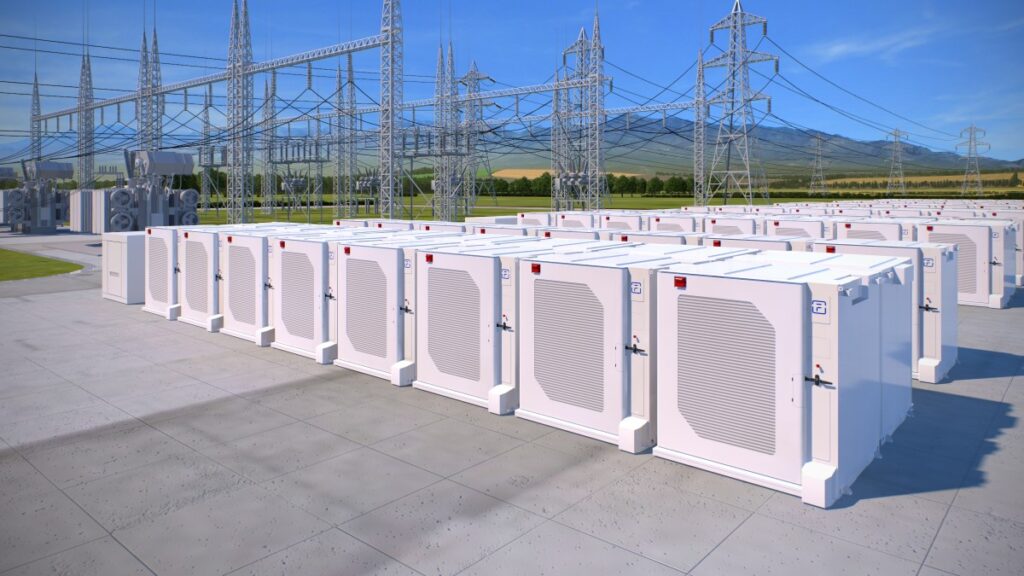
Irish state-owned electricity company ESB has opened a 150MW/300MWh battery energy storage system (BESS) at its Aghada site in Co Cork.
The project is the latest step in ESB’s commitment to investing €300 million (£251 million) in battery storage technology. Its first BESS site launched in 2022, a 19MW/38MWh project also located in Aghada.
ESB chief executive Paddy Hayes called the launch of the company’s “largest battery storage project so far” a “significant milestone”. It replaces the 75MW/150MWh BESS at Poolbeg in Dublin as the biggest of ESB’s projects.
ESB, which is about 95% owned by the Irish state and has the remaining stake held by its employees, partnered with Fluence—a global provider of energy storage products, services, and software—and Irish company Powercomm Group to deliver the project.
ESB and Fluence have partnered for much of the former’s portfolio and Powercomm Group has also previously provided engineering, procurement and construction (EPC) services for ESB.
Attending the site launch, EU commissioner-designate for democracy, justice and rule of law, Michael McGrath, said: “Through the delivery of projects like this, which will facilitate more renewable sources of energy onto the electricity system, it is clear that ESB’s relationship with Co Cork will continue into the future.
“This technology, delivered by ESB and their partners, can play an important role in achieving climate targets both in Ireland and at European level in the pursuit of net zero carbon emissions”.
As well as the two BESS developments, ESB’s Aghada site houses a 708MW gas plant. The firm is targeting net zero by 2040. The Poolbeg site, the location of ESB’s 75MW BESS, is pegged to host a combination of clean energy technologies, including offshore wind, hydrogen, and battery storage, over the coming decade.
Both Ireland and Northern Ireland have set the target of generating 80% of the nations’ electricity from renewable sources. Currently, Ireland’s grid can accommodate up to 75% of electricity from renewable sources at any one time, known as the system non-synchronous penetration (SNSP) limit.
BESS have a major role to play in supporting the successful integration of variable generation sources such as wind power; energy consultancy Cornwall Insight forecasts short-to-medium duration battery storage capacity on Ireland’s single electricity market (SEM) will increase fivefold by 2030.
ESB Networks announced in April this year that Ireland’s electricity grid had 1GW energy storage available from energy storage assets, made up of 731.5MW of battery storage projects and 292MW from Turlough Hill pumped storage power station.
Solar Media Market Research recently found that 36MWh of the nation’s storage capacity comes from storage capacity co-located with solar sites. The storage co-located with solar market represents a pipeline of 1.5GW/2.4GWh, which is steadily increasing.

